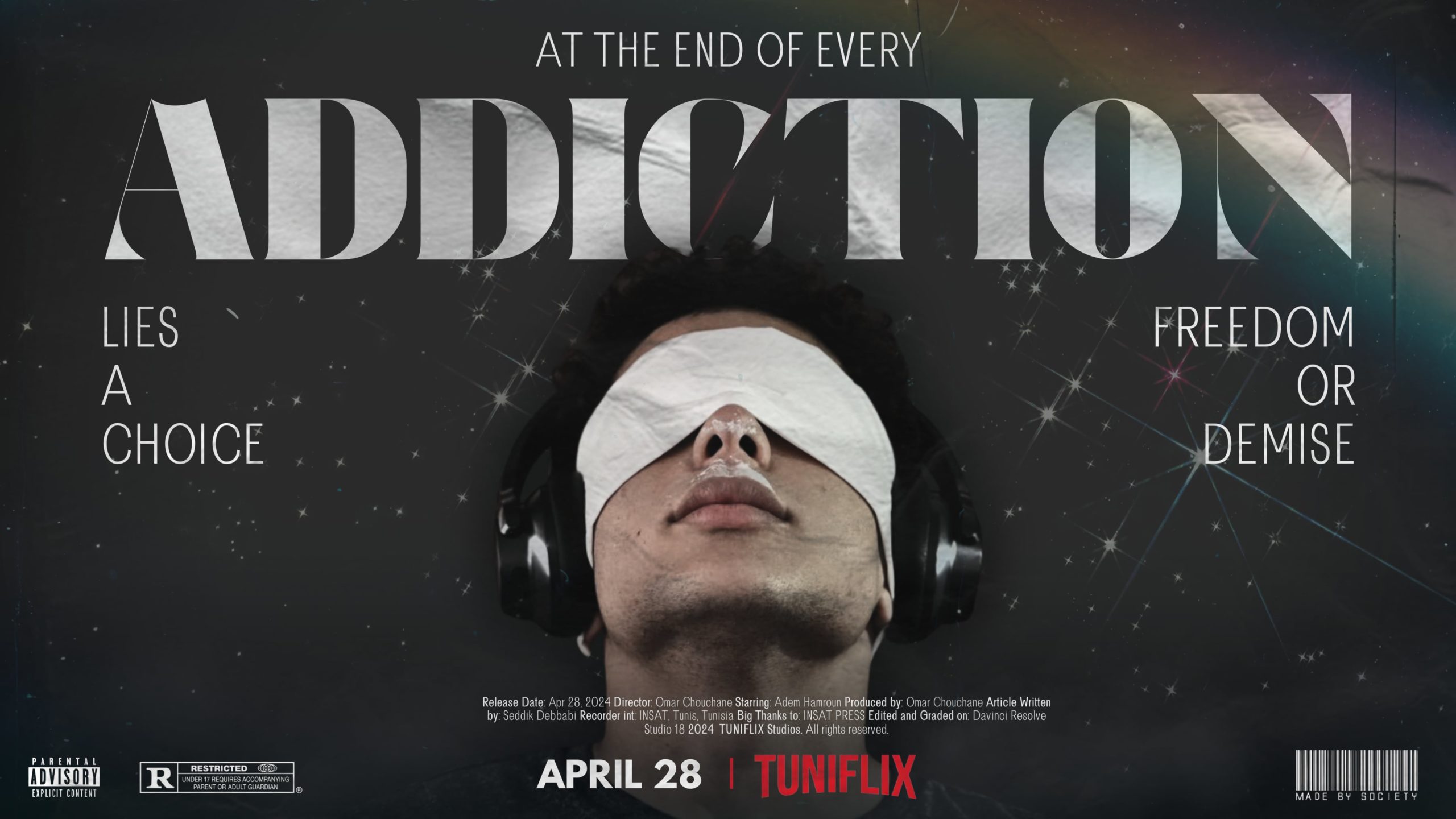À vos plumes
Locks on the inside
Published
3 mois agoon
[simplicity-save-for-later]
“Addiction is the only prison where the locks are on the inside”, what a powerful way to express the nature of addiction. As a matter of fact, the path somebody treads is often defined by the choices he makes in the face of adversity, like for instance choosing drugs for an escape, and so the struggle with drug addiction can steer life towards two starkly different outcomes. On the one hand, overcoming it can lead to happiness and fulfillment, marking a triumphant escape from its grips, while succumbing to addiction on the other hand can spiral into a grievous end. This article will explore these diverging paths by examining a personal story, psychological research, medical insights and more.
Addiction manifests as a profound form of internal imprisonment, where individuals find themselves trapped within the confines of their own minds, ensnared by the relentless grip of compulsions and dependencies. While external factors such as societal pressures or environmental triggers may contribute to the onset of addiction, it’s often the intricate interplay of internal dynamics that perpetuates and exacerbates the cycle.
A well-known illustration is the worldwide famous singer, Amy Winehouse. Her struggle with drug addiction is a well-known aspect of her life and career, evident even in her final performances. Her battles with substance abuse, particularly alcohol and drugs, were widely documented by the media during her lifetime.
Winehouse’s journey took a perilous detour, ultimately contributing to her untimely death in 2011 at the very young age of 27. Her sorrowful story serves as a poignant reminder of the destructive power of addiction and the importance of addressing mental health issues and seeking help when needed. It also underscores the complexities and challenges that individuals with addiction face, regardless of their fame or success.
Psychological research underscores the profound impact of addiction on the brain, revealing how substances hijack the brain’s reward system, leading to compulsive behaviors and a relentless craving for more.
Additionally, studies show that drug abuse remains a real issue in many parts of the world, although its extent varies greatly depending on culture, access, and legislation. In 2021, the estimated number of illegal drug users worldwide was around 296 million. Furthermore, among these users, 39.5 million could be considered “problem drug users” or categorized as having a drug use disorder.
As of the most recent available data, The World Health Organization (WHO) estimates that globally, over 35 million people suffer from drug use disorders, with opioid use disorders being the most prevalent. Additionally, WHO reports that approximately 11 million people inject drugs, and this population faces increased risks of infectious diseases such as HIV, hepatitis C and heart disease.
Moreover, addiction is increasingly viewed within the framework of a chronic medical condition, just like other chronic diseases like diabetes or hypertension. Similarly to these conditions, addiction is characterized by a cycle of relapse and remission, requiring ongoing management and support to achieve and maintain recovery.
Treatment approaches address all dimensions of the individual, including biological interventions, such as medication-assisted treatment, psychological therapies, such as counseling and behavioral therapies, and social support networks, such as family involvement and community resources.
Furthermore, Medications, such as naltrexone and buprenorphine, can help manage cravings and withdrawal symptoms, offering a lifeline to those navigating the tumultuous waters of recovery.
These crucial interventions that were just stated can shift a life from the brink of despair to a hopeful recovery.
To give a brief overview, while addiction remains a significant global issue with millions of individuals affected by substance use disorders, there still is hope for recovery and healing. By facing their inner struggles head-on, seeking guidance from psychological expertise, and embracing medical support, drug addicts can initiate a pathway towards restoration. Along this journey, they reclaim the freedom addiction had once stolen from them, and just as this fatal scourge can be overcome with the right support and treatment, so too can any other issue that individuals may face in life. With a little bit of assistance, resilience, and access to appropriate resources, people can navigate challenges, fight the inner battles they don’t usually talk about, and identify pathways to both, healing in the first step, and selfgrowth in the next one.
Written by: Tuniflix.
Articles similaires
You may like
À vos plumes
Albert Camus on Absurdism and The Beauty of Pushing Rocks.
Published
6 jours agoon
21 juillet 2024 [simplicity-save-for-later]
“What’s the meaning of life?”
A question that we all have pondered over. Yet, there seems to be no clear answer, or at least, no definite one.
The meaning of life is a long-standing subject of philosophical inquiry. While some nihilists and pessimists deem it as an impossible equation to solve – concluding that life is meaningless and one should grow indifferent towards it–, many other philosophers spent most of their lives searching for ‘The answer’, only to arrive at drastically different conclusions. It’s as if the answer refuses to be found, yet the urge to ask the same question remains.
This conflict between humanity’s desire for meaning and the universe’s indifference is what Albert Camus called The Absurd. This absurdity arises from humanity’s restlessness, always asking “Why?” despite the clear lack of answers. So, instead of hopping on this endless search, Camus decided to change the question altogether.
“We must ask: is it possible to live without appeal?”
His answer was yes, arguing that we should not let ourselves search in vain for the meaning of life, but rather, let go of it entirely.
However, grasping such a concept is not an easy task. For how can you ask someone to accept letting go of the only thing that fuels their existence and gives sense to it?
Well, Absurdism dares to argue that acceptance is what will eventually lead to liberation.
When one is going through an existential crisis, Albert Camus proposes 3 solutions:
Solution 1: You run, in a metaphorical sense, by finding meaning in things or concepts that bring you peace and solace such as religion, moral values, principles, and guidelines…. However, this can be considered as philosophical suicide, because you are running away from the problem instead of confronting the possibility of failing at solving its very question. Escapism can never be the answer, especially when these external sources may not resonate with everyone.
Solution 2: You put an end to your life (Do not recommend).
Solution 3: You accept that there is no answer, that life is indeed meaningless, yet, still worth living. You simply move on.
The core of Absurdism aims to end one’s futile suffering and push people into embracing life despite the lack of inherent meaning. Giving up on finding ‘The answer’ will definitely be more challenging than the pursuit of discovering it but the consequences will be way less daunting. Here, one can notice that Absurdism and Stoicism meet. Both philosophies encourage people to accept what one can not control without deeming it as a failure but rather as a strength. You can only suffer if you choose to. It all boils down to a matter of choice at the end. What you give importance to will eventually affect you positively or negatively and it is your responsibility to choose well.
Perhaps, to better understand The Absurd one should take a look at the Greek myth of Sisyphus: A former king condemned by the gods to push a boulder uphill for all eternity only to watch it roll back down again once he reaches the hill’s summit. Sisyphus’s punishment is the perfect analogy to humanity’s unending search for meaning. For what’s more absurd than repeating a futile task to pursue a goal that can never be achieved?
Through his studies of this myth, Camus has come to one important and radical conclusion:
“One must imagine Sisyphus happy.”
But, happy in what sense?
How can someone be truly happy if their whole life is reduced to consecutive failures?
Doesn’t true happiness lie in achieving goals? What’s the point of any of this?
Well, for once, we have an answer:
Perhaps happiness is found in the uncertainty of it all.
Sure, for Sisyphus pushing a rock up a hill over and over again must be exhausting. But did you ever wonder if he grows to enjoy it over time? If all that eternal meaningless labor becomes an art of his own?
Camus likes to imagine Sisyphus smiling every time the rock rolls down the hill, for amid all that absurdity, the Greek king has found meaning: To revolt by making his punishment self-justifying.
Sisyphus fully accepts his situation and hence, he allows himself to give it his all by living with passion, even if that passion consists of pushing a ridiculously heavy rock forever (to each their own, no judgment).
Now, how can we apply Absurdism to our daily lives?
First, it’s vital to take everything with a grain of salt. Philosophy is made to aid humans during their journeys on earth, not to further complicate it. Hence, dearest reader, it is you who decides what to take and what to reject from every proposed belief. For theoretically, the idea of remaining indifferent in the face of meaninglessness can seem doable. But in reality, it’s easier said than done. One must admit that at times staring into the absurdity of life without succumbing to despair or trying to claw meaning out of the leftover pieces can seem impossible. Yet, spending the rest of our lives anxiously clinging to questions and participating in a cyclic race with no view of the finish line is also self-destructive. So, I personally believe that a balanced approach is the answer.
Living authentically, finding joy within the struggle, and embracing the chaos of it all are valuable principles that any absurdist stands for. Not knowing which path to take or what decision to make, and feeling constantly lost and adrift, are inevitable human experiences that each one of us went through at least once in his life. What matters the most is actively choosing to seize the suffering of desperately holding on to the ‘perfect’, whether it is the perfect career, the perfect relationship, the perfect life, or even the perfect lunch. Within hardship, the act of pushing through itself will become the meaning. Constantly worrying about the outcome and isolating oneself from the joys of the world will only bring despair and recurrent dissatisfaction. In that case, life will simply pass you by and you’ll only be a spectator.
In the end, meaning is not found but rather created. And if Sisyphus, a former king who’s condemned to spend the rest of eternity pushing a rock up and down a hill, has found happiness, then so can you.
Written By : Fatma Ben Romdhane.




Share your thoughts